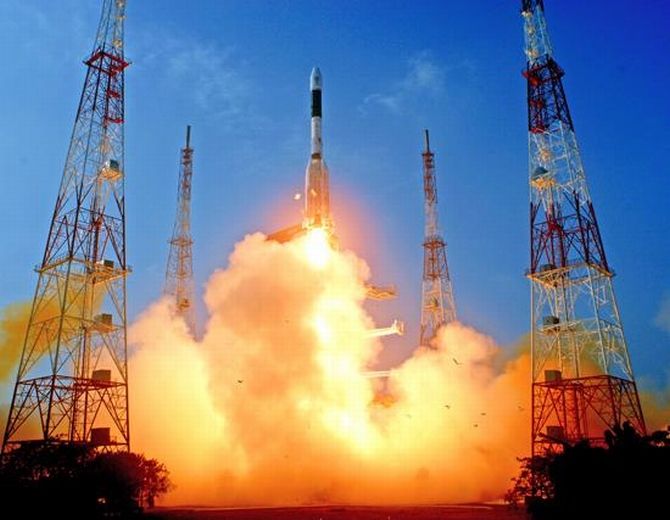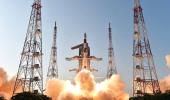
The Union Cabinet on Friday approved the Gaganyaan project, India's maiden human spaceflight programme under which a three-member team will be sent into space for at least seven days.
The cabinet's nod for the Rs 9,023-crore programme came nearly five months after Prime Minister Narendra Modi announced the project in his Independence Day speech. He had said the mission would be undertaken by 2022.
"Under the mission, a three-member team will be sent to the Earth's lower orbit for at least seven days," Union Minister Ravi Shankar Prasad said.
On completing the mission, India would become the fourth country to put a human in space using its own space programme after Russia, the United States, and China.
Though the official approval for the project came on Friday, the work on it has been going on for quite some time. India has already inked agreements with Russia and France for assistance on the mission.
The first human space flight demonstration is targeted to be completed within 40 months from the date of sanction. Prior to this, two unmanned flights in full complement will be carried out to gain confidence on the technology and mission management aspects, according to a government statement.
The Indian Space Research Organisation (ISRO) has developed and demonstrated most of the baseline technologies essential for undertaking human spaceflight mission.
'The total fund requirement for the Gaganyaan Programme is within Rs 10,000 crore and includes cost of technology development, flight hardware realisation and essential infrastructure elements. Two unmanned flights and one manned flight will be undertaken as part of the programme,' the statement read.
The programme will establish a broader framework for collaboration between ISRO, academia, industry, national agencies and other scientific organisations, it said.
The project is expected to generate employment and train human resources in advanced technologies. It will inspire large number of young students to take up science and technology careers for national development, the statement said.
The programme is expected to spur research and development within the country in niche science and technology domains. Huge potential for technology spinoffs in areas such as medicine, agriculture, industrial safety, pollution, waste management, water and food resource management are also expected, it said.
'The human spaceflight programme will provide a unique micro-gravity platform in space for conducting experiments and test bed for future technologies.
'The programme is expected to give impetus to economic activities within the country in terms of employment generation, human resource development and enhanced industrial capabilities,' it added.











 © 2025
© 2025